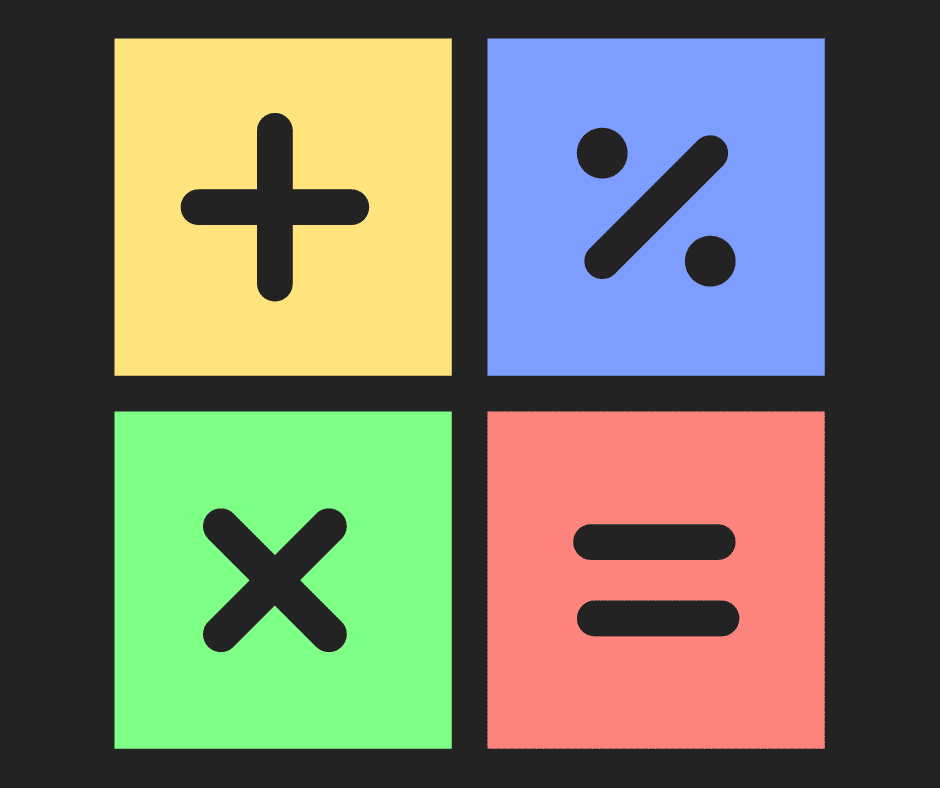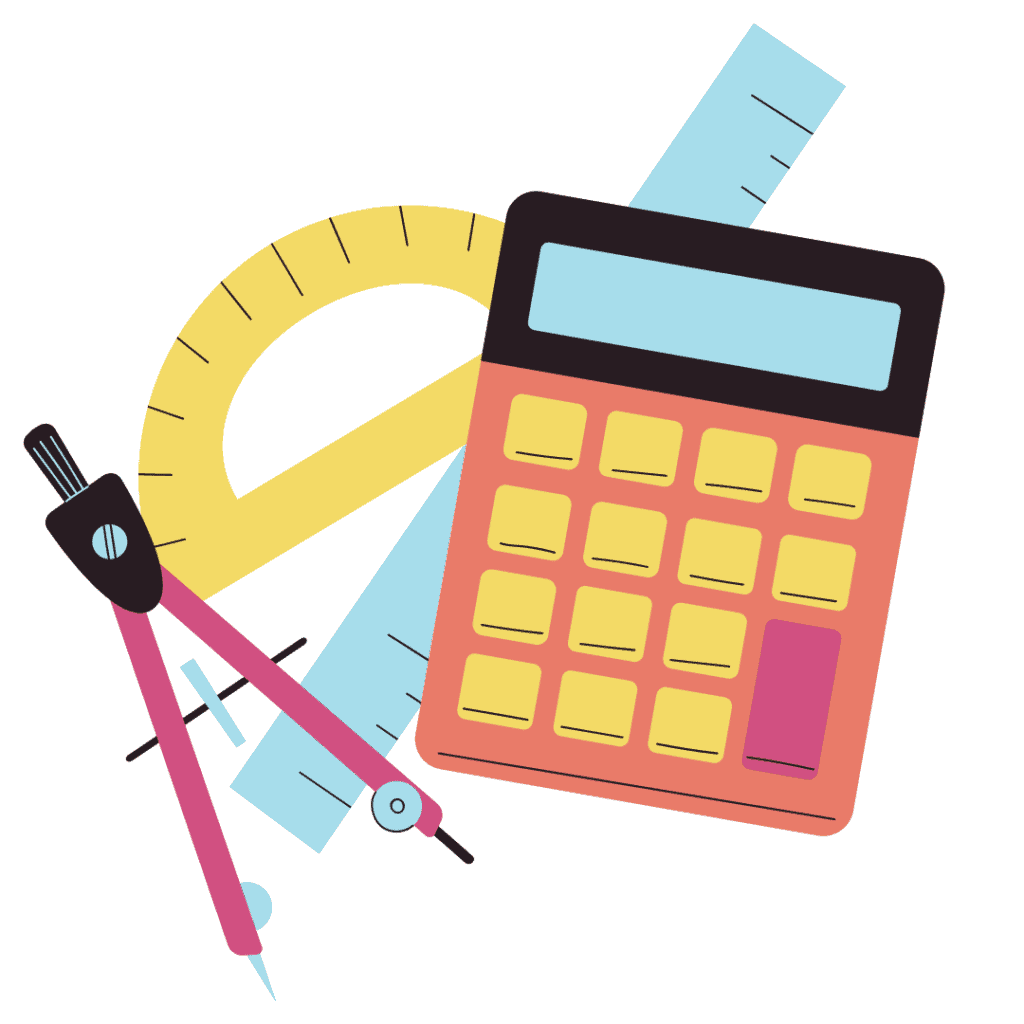So, Should You Take A Dyscalculia Test For Adults?
Most people don’t know where to start when it comes to taking a dyscalculia test for adults. There is just so much information out there for children.
Have you ever wondered or verbalized these questions:
- How do I know if I have dyscalculia?
- How do adults get tested for dyscalculia?
- How do I know if I have adult dyscalculia?
- How do I prove I have dyscalculia?
- How is adult dyscalculia treated?

If you are trying to determine if it’s worth your time, money, and pride to take a dyscalculia test for adults, you are in the right place.
I happen to be a dyslexic adult, who has been in your shoes trying to decide if it’s worth the time, energy, and money to get tested as an adult.
Before we go any further, I would like to congratulate you on taking this journey and learning more about your learning.
There has to be a level of awareness of your math skills that too often those of us with learning deficits try to ignore or deny away.
I’ve been there! It can be lonely and you don’t want people to think that you are stupid. Hack, you want to prove to yourself that you aren’t stupid.
If many of us are totally honest, we already feel that way or used to when we were growing up.
Deep down you know you are not, but the fact remains that you perform math, even basic math, poorly.
Requesting a dyscalculia test for adults is an investment and depending on your goals, it could possibly be a necessary investment.
These types of evaluations by a certified psychologist aren’t cheap (I do have a resource that I will share later that is more cost-effective).
Before you make your decision, I would like you to really consider the following:
- Do you have dyscalculia symptoms- adults symptoms and does it impact your life,
- Do you know of effective dyscalculia treatments for adults and how you possibly can increase your math skills and
- Do you have a good understanding of dyscalculia?
Dyscalculia In Adults Defined
To be sure you understand what Dyscalculia is, (there can be some confusion) it’s a specific learning disability that impacts an individual’s ability to do math, even basic math.
It’s important to understand that it’s not an intellectual disability. People who have dyscalculia have average and above-average intelligence.
Many people with this math difference have problems with calculations dealing with addition, subtraction, multiplication, and division.
Dyscalculia impacts individuals in school settings, the workplace, and even at home.
Taking a look at this video may help your understanding of dyscalculia also.
Now that you understand what dyscalculia is, let’s look at the symptoms.
Identifying how you are impacted will help you make the best decision to take a dyscalculia test for adults or not.
Dyscalculia Symptoms: Adults at Home
- Performing mental math is a struggle.
- Unable to effectively give correct change and I feel more comfortable using a calculator, especially for things like calculating tips.
- Miss appointments and are often late.
- Finds it difficult to remember names and phone numbers.
- Inability to estimate how long it will take to drive somewhere.
- Misplaces objects around the house frequently (hand raised for sure).
- Struggles to keep score in games; often loses track of whose turn it is
- Experiences more difficulty telling time on an analog clock than a digit one.
- Difficulty remembering anything number-related, like dates or facts
- Struggles to learn dance steps or anything involving motor sequencing.
Dyscalculia Symptoms: Adults at Work
- Experience anxiety when faced with math unexpectedly at work
- Have Trouble handling money or keeping track of finances
- Frequently doesn’t complete tasks in the allotted amount of time, or fails to plan enough time to get everything done.
- Trouble understanding graphs or charts
- Find it hard to understand spoken math equations, even very simple ones
- Skips numbers or transposes them when reading a long list or spreadsheet
- Finds it difficult to use Excel formulas
- Uses fingers to count or marks pages with tally marks to keep track of numbers.
You might find this video helpful as well:
How many of those symptoms do you experience at home and at work?
It’s important before you take the plunge into taking a dyscalculia test for adults to be able to articulate how your math challenges impact your daily living.
If you are unable to keep your job or can’t function at home, then professional testing may be necessary.
This step will help you to benefit from accommodations. Having accommodations could be a game changer for you to be able to do your job or function better in your home.
Before you finalize your decision as to whether you will take a dyscalculia test for adults, consider my answer to the questions posed earlier.
How do adults get tested for dyscalculia?
If you are interested in taking a dyscalculia test for adults, seek out a licensed psychologist. The psychologist will conduct a series of assessments and make a diagnosis.
Testing is generally 2 to 4 hours. However, you can take a screener before taking the actual step to do dyscalculia testing for adults.
It’s important to understand that screeners can give you the confidence you need to take the step for professional testing because it can let you know your potential for having dyscalculia.
However, it’s important to know that dyscalculia in adults can only truly be confirmed by testing with a psychologist.
How do I know if I have adult dyscalculia?
In your heart of hearts, you just know. I only say that because there will be people who can’t afford an evaluation.
I actually don’t have documents that say I am dyslexic; however, in school, I was served via an IEP under Specific Learning Disability.
Although I’ve weighed the option to test for years, unless I try for my doctorate in education, I don’t need to have one. But I claim dyslexia because I have classic symptoms.
At the end of the day, “Who gonna check me boo?” lol!
So, if you don’t need accommodations take this screener. It’s short and easy. If you have more yeses then allow your mind to be at ease.
Rest in knowing that it’s not you. You are not stupid, there is a name for what you have and it’s dyscalculia.

What is the best dyscalculia treatment for adults?
There are no easy answers here. Dyscalculia isn’t treated with medication as no learning disability is.
The best course of action is dyscalculia interventions as well as dyscalculia intervention strategies along with strategic accommodations.
So, put your mind at ease and embrace the calculator. Think of it as a tool that helps you compensate for your difficulties.
If you want to prove to yourself that you can learn those times tables, I believe you can. I do have a recommendation.
Dyscalculia Treatment with Times Tales
One of the best ways to instruct those with any learning disability, including Dyscalculia, is through multisensory instruction.
Times Tales is an innovative multisensory program that I’ve come across that helps with basic multiplication facts retention.
It’s a story-based program that helps you learn the times’ tables. It’s visual and it’s auditory!
Simply watch the stories and you will start to memorize the tables. It’s almost effortless.
What makes Times Tales even better is that it’s cost-effective. As an adult, I really enjoyed watching the stories with my daughter and inadvertently brushed up on my facts too.
That is a win/win.
I actually reviewed Times Tales. Take a look below.
How do I prove I have dyscalculia?
If you must “prove” you have dyscalculia then you can check out this online testing center here.
You might also enjoy the following videos as you continue your journey:
Disclosure: Please note that some of the links above are affiliate links and at no additional cost to you, I’ll earn a commission. Know that I only recommend products and services I’ve personally used and stand behind. When you use one of my affiliate links, the company compensates me, which helps me run this blog and keep all of my in-depth content free of charge for readers (like you).

0 Comments